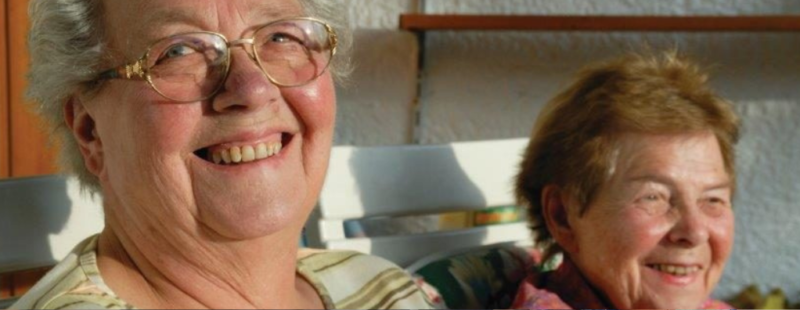Today sees the release of the Scottish Government’s loneliness strategy. We reflect on what’s in the strategy and how it was developed.
What’s in the strategy?
Scotland was one of the first countries in the world to announce that it would develop a strategy. The Campaign to End Loneliness, along with British Red Cross, has been instrumental in creating a coalition of charities called the Action Group on Isolation and Loneliness (AGIL). Together, we have campaigned for a stronger loneliness strategy from the Scottish Government
The strategy is a good start. It acknowledges the need for government, local authorities and health bodies, civil society, businesses, communities and individuals to all play their part. It recognises the need to look at life transitions which can make people vulnerable to loneliness. It has also helpfully highlighted upcoming legislation in 2019, such as in planning and housing, which can impact loneliness.
Focus on chronic loneliness
The strategy highlights the need for work to be done to address chronic loneliness, as well as investment in prevention while getting the right definitions in place. It will set up a new cross-Ministerial group to help drive the strategy and an implementation group to drive it forward (a key recommendation from AGIL).
The proposal to develop knowledge to understand what a holistic pathway of support for someone experiencing chronic social isolation looks like is particularly exciting. Helping people make that first step is the most crucial one. Experiencing loneliness can lead to a loss of confidence and tackling it can feel like climbing an impossible mountain. Particularly if compounded by long-term health conditions.
Guidance for local and health authorities
AGIL are delighted to see the Government’s intention to develop a set of guidance for local authorities and health authorities, particularly with the push for integration of social care and health. The Promising Approaches framework the Campaign to End Loneliness developed with Age UK in 2015 is a good start in helping governments, local authorities and health bodies understand the factors involved.
This is a piece of work we will be updating over the next 12-15 months.
The role of business
Another of the AGIL’s asks was calling on the Scottish Government to convene a meeting of business leaders to look at how they can positively help customers make connections as well as support their own staff and that is in the strategy. It will be vital to ensure that this involves other civil society actors to help spark ideas and potential collaborations.
Measurement of loneliness
Loneliness will be measured in Scotland through inclusion in the Scottish Household survey – a great result for AGIL – It will also be included as one of the National Indicators for the Scottish Government.
Social Prescribing
The Scottish Government will continue to expand the Social prescribing work already taking place in through the community link workers programme. This is an area it is vital we get right, as simple signposting work will let many people down without additional support.
Stigma
The strategy recognises the impact of the stigma of loneliness for people accessing support. The Campaign to End Loneliness found that 76% of older people did not want to admit they were lonely as they feared feeling like a burden. This indicates the scale of self-stigma and society’s view of people experiencing loneliness in Scotland and in the UK as a whole.
The conversations we’ve undertaken across the UK show that people are more comfortable talking about making connections than talking about their experience of loneliness.
Culture and sport
The strategy highlights the role of culture and sport. There is a challenge here for cultural and sporting institutions to look closely at how mainstream events and activities work better to ensure people have more chance of making connections in their every-day lives before chronic loneliness takes hold.
Extra funding is needed
A new £1 million fund over two years to test new and innovative approaches is another key recommendation of AGIL. It’s a good start but the scale of the challenge remains huge. According to the British Red Cross, just under one million people in Scotland may be experiencing loneliness.
The principle of prevention informs the Scottish Government’s plan of work. We want to see robust investment in the prevention of loneliness and that will require more money.
The devil really is going to be in the detail, and we have to ensure there is major political capital behind it. We look forward to seeing what 2019 brings.





No comments on this article yet. Please feel free to submit a comment below.
By submitting a comment you grant Campaign to End Loneliness a perpetual license to reproduce your words and name/web site in attribution. Inappropriate and irrelevant comments will be removed at an admin's discretion. Your email is used for verification purposes only, it will never be shared.